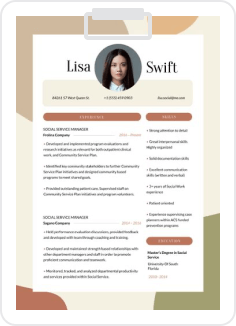5 entrepreneur skills for a big breakthrough: How to master them in 2022
Bad news: no one is born with a complete set of entrepreneur skills, just like no one is born a great dancer, brilliant manager, or talented designer. According to American psychologist Carol Dweck, you can develop any abilities. It starts with your mindset: with the belief that challenges are fun — not scary, failures are the best lessons, and talents result from hard and regular work.
So, don’t get disheartened if you have trouble managing a team, reading balance sheets, or coming up with marketing campaign ideas. Even if you lack some of the skills of an entrepreneur, you can find out how to develop them in this article. Let’s explore 5 of them with practical tips on improving, and additional materials to dive even deeper:
- Financial literacy;
- Time management;
- Creativity;
- People management;
- Adaptability.
Make yourself a cup of coffee and enjoy the read! ☕️
#1 — Financial literacy
An entrepreneur is a person who aims to profit by starting a business. And there’s no chance of running a lucrative company without a basic understanding of finance. Of course, you can hire an accountant to manage your finances, but you’ll still have to be in control.
Even preparing a business plan requires understanding startup capital (registration fees, permits and licensing, starting inventory, etc.) and operational expenses (salaries, rent, materials, distribution, promotion, etc.). This makes financial literacy one of the skills needed to be an entrepreneur.
According to the CB Insights survey, one of the top reasons small businesses fail is by running out of money. You can avoid this by developing financial literacy, as it helps you to:
- Manage your business on a daily basis;
- Make efficient decisions based on numbers, not assumptions;
- Scale your business with time;
- Survive market downturns.
🤔 How do you learn to manage finances better?
Mastering your financial literacy might take some time. By subscribing to financial newsletters, watching video,s and reading books, you’ll gain some ideas on how to improve this entrepreneur skill:
- Start with YouTube videos for a surface dive: Managing startup finances or Bookkeeping basics for small business owners.
- Dive deeper with books on managing finance: Financial starter kit, The lean startup, or Rich dad’s increase your financial IQ.
- Take it to the next level by signing up for courses on Udemy, Coursera, or any other platform you like.
#2 —Time management
If you don’t want to become part of the “When does an entrepreneur sleep? Never!” joke, you need to learn to manage your time better. It’s not that easy for a small business owner who is in charge of every little task. Whether designing visuals for social media or launching Google ads, you most likely have to do it yourself.
Sooner or later, you’ll need to learn how to delegate, as this is the basic rule of time management. Doing everything on your own will only result in burnout. So, focus on strategically important tasks like the concept of your new product line or meeting with investors, and delegate less essential ones to your employees.
🤔 How do you improve your time management and organizational skills?
First, you need to think about what poorly influences your productivity. It can be too many meetings, remote work, poor task management in your team, or even an uncomfortable chair. Start with changing that one thing. Here are some more ideas for improving this entrepreneur skill:
- Use time management techniques such as the Covey time management matrix or the Pomodoro technique. Learn more about both of them in our article!
- Plan ahead: not having an accurate outline of what should be done today, in one week, or in a few months can lead to chaos. Consider using a productivity method by Ivy Lee:
Source: BestSelf Co.
- Leverage special tools like RescueTime, Todoist, Toggl, or Focus Keeper. There are lots of them: choose one you like the most.
- Get rid of distractions: yes, this does mean you need to turn off notifications on your smartphone and move the gadget away when you need to focus. The same goes for meetings: Kris Duggan from BetterWorks suggests planning no more than 2-3 meetings per day.
- Rest 😴: this is obvious, yet entrepreneurs continue to ignore it. Try to take walks in the park, have a break workout, or even a 20-minute nap in the office — just to recharge and boost your productivity. And forget about your smartphone: scrolling through Instagram is not rest.
#3 — Creativity
David Kelley, the founder of a design and innovation company called IDEO, thinks that creativity is not the ability to draw a picture or compose music, but a way of understanding the world. Together with his brother, he researches how to approach problems more creatively; hence, how to become a successful entrepreneur. The Kelley brothers believe that most people have ideas, but they are not implementing them in life because of fear of judgment.
Authors of “The innovator’s DNA” identified 5 “discovery skills” that make innovative entrepreneurs: associating, questioning, observing, experimenting, and networking. Creative executives spend 50% more time on these activities, and as a result, we have today’s Elon Musk, Jeff Bezos, and Pierre Omidyar. Let’s take a closer look at each of the “discovery skills”:
- Associating: building connections between problems and ideas from various fields.
- Questioning: doubting the unquestionable and challenging assumptions.
- Observing: analyzing people’s behavior, whether it’s your customer, employee, or supplier, to do things differently.
- Experimenting: trying out different ideas with the help of prototypes or pilots.
- Networking: meeting people with different perspectives to learn from them.
🤔 How do you solve problems more innovatively and creatively?
To be successful, an entrepreneur must look for ways to do things differently, whether it’s finding innovative, sustainable material for your product, or a new approach to customer service. Start with these tips on improving your creativity:
- Research creative tools and techniques, and apply them to your work routine; here are a few examples:
Terrible idea. Make a list of the worst ideas you can think of, and then identify their best features. This can help you to come up with unusual solutions for your business.
Brainstorm. It takes a team to generate innovative ideas. So, gather your employees, tell them about the problem you need to solve, then set a timer for 5-10 minutes and allow people to share their craziest ideas. No judgments! Afterward, you can discuss those ideas and choose those what suit your needs.
6 thinking hats. A technique that allows you to look at the problem from 6 different angles:
Source: Whiteark.
- Learn more about creativity as an entrepreneur ability with the help of books: Creative confidence, The innovator’s DNA, and Still like an artist.
- Walk, meditate, do nothing: the best solutions often come to mind when you stop focusing on the problem.
#4 — People management
As your small business grows, your team will become bigger and bigger. And your responsibility will not only be to hire people, but also set clear tasks and deadlines for them, leverage their strengths and develop their weaknesses, lead, and inspire them. Here come soft skills entrepreneurs should have — managing people.
To become a good manager, you need to understand people’s emotions and control your own. Emotional intelligence and the skills it requires can help you with this:
- Self-awareness: recognizing and labeling your emotions.
- Self-regulation: expressing emotions appropriately. For example, if you need to focus, you can calm your brain down. If you have a conflict with a college, you set a meeting up and talk it through.
- Motivation: focusing on internal rewards, like fulfilling your goals, instead of external rewards like fame and money.
- Empathy: understanding and appreciating other people’s feelings, using this knowledge as a guide in your relationships.
- Social skills: building strong relationships with others through an interest in another person, active listening, verbal conversations, and body language.
As a business executive, you should also practice transparency in communication with your employees:
A lack of communication can be a huge vulnerability for teams and organizations. As a leader, you should lead by example and help implement a culture that thrives on proactive, open, and honest communication. This should flow in every direction and include gaining feedback from clients, partners, and staff often. By not having this skill, negative sentiments can start to grow and spread within the organization.
Jared Polites, entrepreneur and writer
🤔 How do you enhance your people management skills?
Apart from learning how to listen, paying attention to body language, and asking open-ended questions, here are some ways to develop this critical skill for entrepreneurs:
- Hold team meetings regularly: you need to keep up with what’s going on in your company. What if your employees are suffering from overtime because of poor processes organization, or your customers are complaining about bad quality products because of your new supplier. Meetings can make you aware of all these problems. You can also hold unofficial Friday pizza parties to chat and strengthen your relationships with team members.
- Get inspired by other managers’ experiences: Most leaders don’t even know the game they’re in, Stop managing, start leading, or 3 ways to create a work culture that brings out the best in employees.
- And again, read books: Emotional intelligence, How to win friends & influence people, or The making of a leader.
#5 — Adaptability
Entrepreneurs have to deal with many external factors in today’s global world, like COVID-19, the Russian war against Ukraine, the lack of resources, emerging technologies, and social media. All of them influence the market and, as a result, businesses. That’s why adaptability and the willingness to learn are essential skills of an entrepreneur.
It [adaptability] combines flexibility with versatility. Flexibility is your willingness to adapt. It’s your attitude. Versatility is your ability to adapt. It’s your aptitude.
Dr. Alessandra, writer, entrepreneur, and motivational speaker
Think of restaurants that launched delivery food services when the pandemic started, or fashion brands that switched to sustainable materials as the trend began to progress. When TikTok emerged, it was considered a social media for Gen-Z; now, financial counselors are posting videos on the platform to get more clients. Everything is changing so fast that you have to keep up to stay relevant.
🤔 How do you develop adaptability to keep up with the times?
“Change is the only constant in life,” Heraclitus said. So, keeping your mind open and adjusting to change are vital skills for entrepreneurs. Here are tips on how you can do this:
- Never stop learning: a growth mindset distinguishes a successful entrepreneur from a failed one. Whether you need to create a content plan for social media, launch Facebook ads, or understand how SEO works, you can learn how to do this. Articles, videos, courses, or consultations with professionals — there is plenty of information on different complexity in different formats.
Source: BestSelf Co.
- Tweak your attitude toward failure: only those who do nothing don’t make mistakes. What matters is how you react to those mistakes: you learn from them and carry on, or give up. Determination is another essential skill of a successful entrepreneur.
- Have a backup plan: if you buy materials from suppliers, it’s good to have several of them in case one won’t be able to fulfill an order. The same goes with retailers: sell your products at different stores to protect yourself from emergencies.
Takeaway
Being a small business owner is tough. Besides dealing with tons of challenges every day, you can often suffer from imposter syndrome, doubting your professional skills. You’re not alone — typically, you lack some of the skills of an entrepreneur. But the truth is, you can constantly develop them in yourself.
And while you have already learned what skills are important to have as an entrepreneur, here’s one more tip for you. Create a “No matter what” list to save time for yourself and not fully dissolve in work. You can promise yourself to have dinners with your family every day, run in the mornings, or meet friends every Friday. These simple rules can help you avoid burnout, and be happy and productive as an entrepreneur.
Good luck, and keep up with VistaCreate for more valuable business, marketing, and design information! 🖖




















